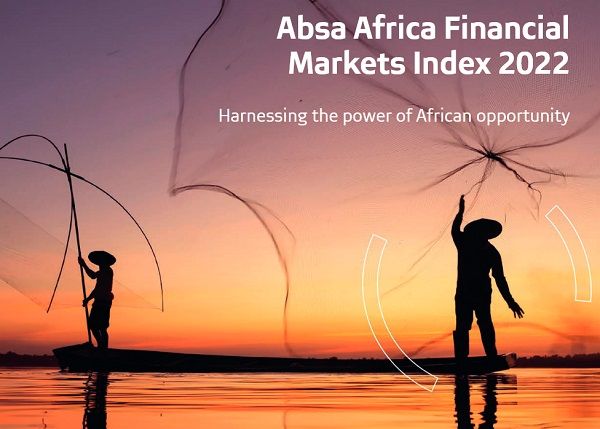
Absa index shows deeper financial markets outside South Africa for improved resilience

African countries have responded positively to the need to develop domestic financial markets to protect economies from external shocks, OMFIF’s 2022 Absa Africa Financial Markets Index reveals.
In addition to quantitative data analysis, OMFIF conducted surveys of over 50 organisations across Africa to produce the index. This includes responses from central banks, securities exchanges, regulators, market participants, accounting firms and international development organisations.
OMFIF is an independent think tank for central banking, economic policy and public investment, providing a neutral platform for public and private sector engagement worldwide.
Even as challenging market conditions weighed on performance in the index, 19 of the 26 countries improved their scores relative to last year. This was largely due to broad-based progress in developing sustainable financial markets, which is becoming increasingly important to global investors.
Namibia, Uganda, and Kenya are among the countries with the greatest increase in scores. They have bolstered their environmental, social and governance market frameworks and, in Kenya, climate risks have been incorporated into financial stability regulation. Greater product diversity has lifted scores for most countries too, like Angola and Lesotho which both issued their first initial public offerings over the past year.
The Absa Africa Financial Markets Index, now in its sixth year, presents a broad view of financial market progress. The index continued to evolve this year. Coverage has expanded to 26 countries with the addition of the Democratic Republic of the Congo, Madagascar, and Zimbabwe.
The index also recognises the contribution of digital initiatives and innovations to African financial market architecture. While not directly impacting scores, the report highlights countries’ progress in upgrading market infrastructure, transparency and regulation using new technologies. It also sheds light on various financial inclusion initiatives which help to build a broader domestic investor base.
Continued progress on sustainability, digitisation and financial inclusion will be crucial to improve Africa’s appeal and access for investors, enabling the continent to develop its resilience to any future external shocks.
Key findings include:
* South Africa, Mauritius and Nigeria maintain their positions in the top three this year, as they continue to score highly on measures of market depth, transparency, and enforceability of legal agreements.
* Uganda rises two places to fourth, while Namibia and Kenya improve their ranking within the top 10. Scores for these three countries primarily rose due to progress in adopting ESG policies and frameworks.
* Seventeen countries in the index now have sustainability-focused policies – five more than last year.
* Foreign exchange reserves adequacy has generally weakened relative to the previous year. Ten AFMI countries have received International Monetary Fund financing in 2022, worth a cumulative US$1.6bn, to cushion the blow from external shocks.
* Several countries are using digital technologies to improve market access, information, and inclusion, while initiatives to integrate financial markets across Africa are gathering momentum.
OMFIF chairman, David Marsh, commented: “Africa looks an attractive investment destination based on capital market structures that actively guide adequate risk pricing. There are many areas on which to build. Unstinting efforts by the private sector – together with the International Monetary Fund, multilateral development institutions and our network of partner institutions around Africa – are required to extend these positive changes.”












































